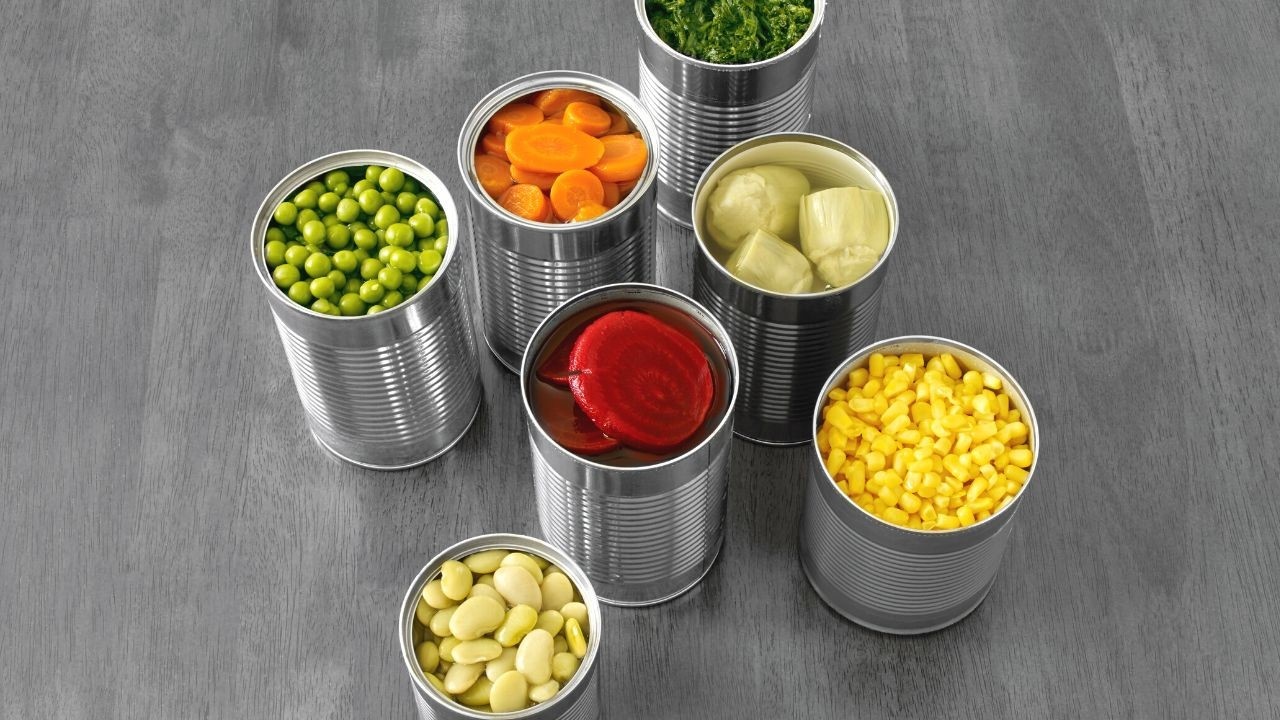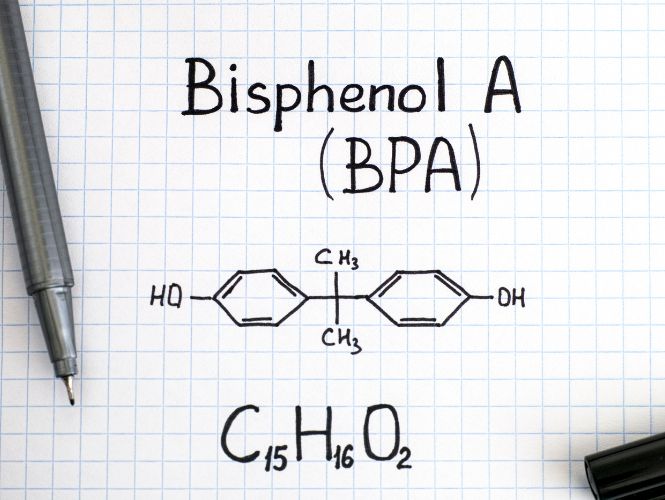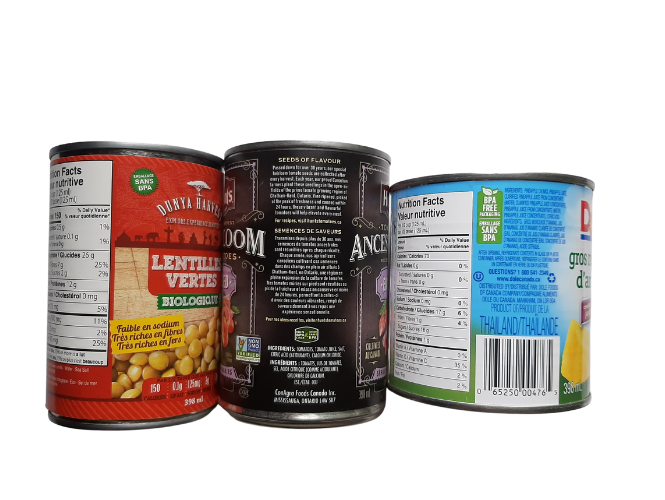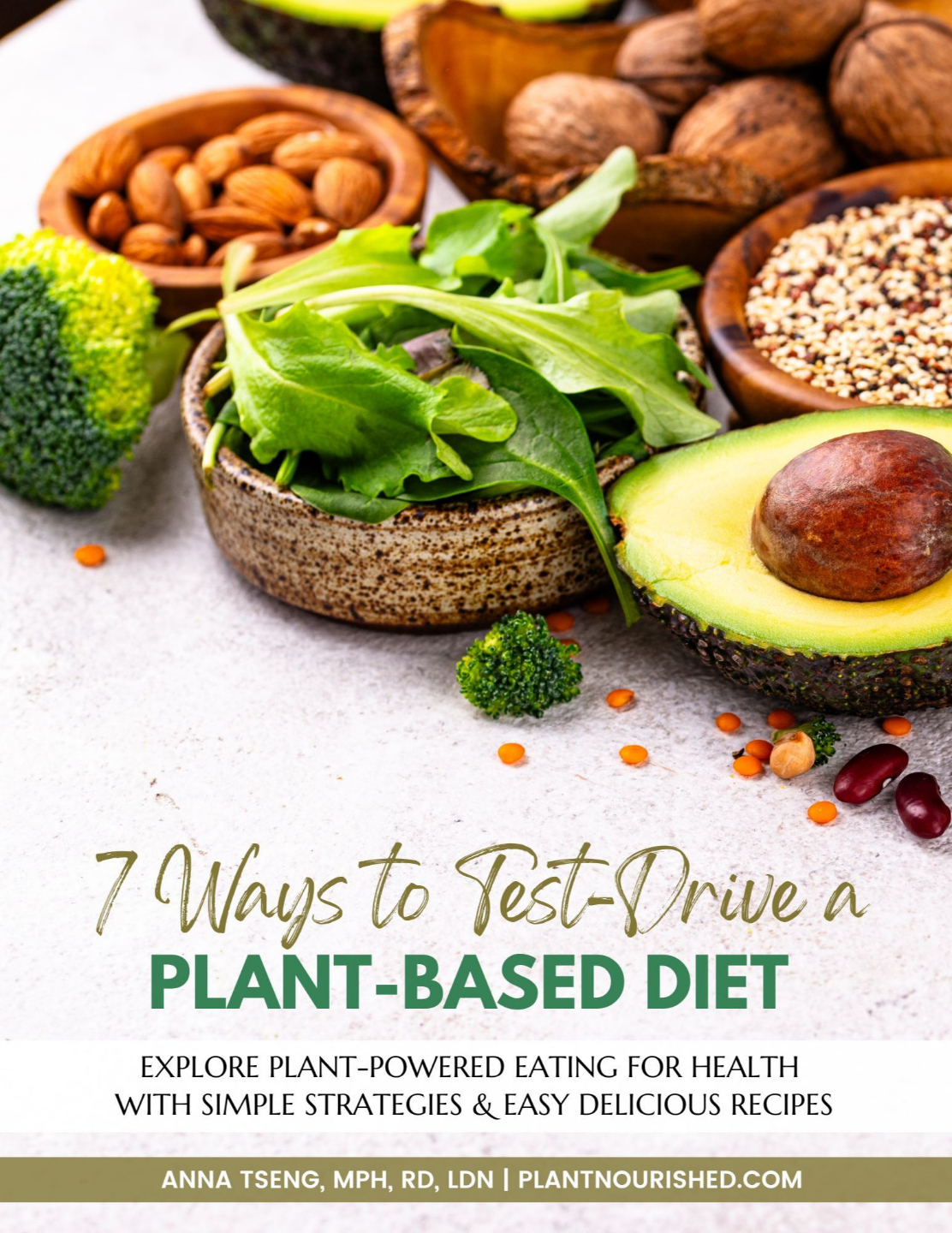What Is Bisphenol A and Should You Buy Food in BPA-Free Cans?
Jun 27, 2022
It’s hard to beat the convenience of canned goods like canned vegetables, fruits and beans. One obvious advantage is that there’s no refrigeration required and these cans are generally shelf-stable for at least a year or two. Pop open a can of beans or lentils, drain and rinse them, and you pretty much have a ready plant-rich source of protein, fiber and other nutrients at your fingertips to use how you want. There is, however, an elephant in the room that needs to be addressed – what about Bisphenol A (BPA)?
What Exactly is BPA?

Bisphenol A (BPA) is a synthetic chemical that is considered an endocrine-disrupting chemical (EDC) with weak estrogenic effects. It is commonly found in products we use on a day-to-day basis, such as in many canned goods, children’s toys, plastic containers for food and drinks, dental sealants, medical devices and thermal paper. So yes, BPA is found in many everyday items in our homes and in our environment! Studies have shown an association between BPA exposure with health conditions like diabetes, obesity, cardiovascular disease and negative effects on thyroid function and neurodevelopment.1
In addition, there appears to be an association between BPA exposure and the incidence of different cancers, particularly breast and ovarian cancers.2

BPA in Food Cans
Bisphenol A (BPA) has been used in food packaging since the 1960s. It is used heavily by the food industry to coat the inside of food cans, to prevent direct contact of the metal with food, and also to influence the structural strength and thermal stability of the can.3 Although it is hard to tell which food cans have BPA, it’s easier to tell which ones contain the BPA substitute, as these cans are usually labeled clearly ‘BPA-Free’ on the package label.
Government Regulations on BPA
There are some governmental regulations regarding BPA use but these are limited. In Europe and Canada, laws have been in place since 2010 preventing the use of BPA in plastic food containers, including baby products. In 2012, the U.S. Food and Drug Administration also documented that baby bottles and sippy cups could no longer contain BPA.1 However, it should be noted that FDA’s current perspective is that BPA is safe at the current levels occurring in foods, based on their safety assessment and ongoing safety review of scientific evidence.3
The Issue with BPA substitutes
As a result of public attention and regulations, BPA substitutes have been developed and are now widely used. These include bisphenol S (BPS) and bisphenol F (BPF). These are bisphenol analogs used in ‘BPA-Free’ products.
However, here’s the issue. Since these BPA substitutes have similar structures to BPA, studies are showing them to have similar metabolic pathways, potencies and actions as BPA, with potentially similar endocrine disruption effects and health impacts. The strength of hormonal activities, though, appears to differ depending on the specific bisphenol analog studied. But given that these substitutes have not replaced BPA for a very long period yet, a higher exposure level and more studies are likely needed in the future to determine the full potential adverse health effects of these BPA substitutes.4
So although the label ‘BPA-Free’ appears to give many the impression that such products are much safer than regular canned foods, it is important to be aware that the full safety of BPA substitutes has not been proven yet. More research in this area is definitely needed on the long-term health effects of BPA substitutes. Instead of BPA substitutes, I agree with the view that food manufacturers should really focus on developing new alternative safe materials to use in the food manufacturing and canning process.4
The Bottom Line
In general, canned and frozen versions of foods like beans and lentils can be great convenient options, especially when you are just beginning your plant-based diet transition. In terms of which canned goods to choose, you can decide whether to buy BPA-free cans or not. Although buying BPA-free canned goods is likely beneficial given the already known potential health impacts of BPA, just know that the safety and benefits of doing so may not be as great as what was initially perceived.
Overall, it’s best not to rely on using canned beans and other canned foods exclusively for the long term. As you continue on a plant-based diet, branch out to try a few different types of frozen beans and vegetables. There are now many varieties to choose from! These are usually packed at peak ripeness and often come already cut, so they can be used immediately to make plant-based meals.
You can also begin to explore and get comfortable using the dried versions of beans over time to best optimize your health. Dried beans have the advantage of being more budget-friendly and there are a greater variety of beans and other legumes to choose from, compared to available canned versions. If you are using dried beans, save time by soaking the dried beans overnight, then cooking a bigger batch in bulk. Then it becomes easy to freeze extra portions of cooked beans to be used at a later date, saving you time, energy and effort in prepping beans and also in washing up kitchenware!
Sources:
- Liu B, Lehmler HJ, Sun Y, et al. Association of Bisphenol A and Its Substitutes, Bisphenol F and Bisphenol S, with Obesity in United States Children and Adolescents. Diabetes Metab J. 2019;43(1):59-75. Accessed May 29, 2022.
- Dumitrascu MC, Mares C, Petca RC, Sandru F, Popescu RI, Mehedintu C, Petca A. Carcinogenic effects of bisphenol A in breast and ovarian cancers. Oncol Lett. 2020 Dec;20(6):282. doi: 10.3892/ol.2020.12145. Epub 2020 Sep 23. PMID: 33014160; PMCID: PMC7520752. Accessed May 29, 2022.
- Bisphenol A (BPA): Use in Food Contact Application. U.S. Food and Drug Administration. November 2014. Accessed May 29, 2022.
- Moon MK. Concern about the Safety of Bisphenol A Substitutes. Diabetes Metab J. 2019;43(1):46-48. Accessed May 29, 2022.
Before You Go, Grab this FREE Resource
If you would like to learn how to start plant-based eating or to begin a whole food plant-based diet, grab this FREE resource “Beginner’s Quick Guide to Must-Know Plant-Based Diet Basics” to help you on your journey.
This FREE guide gives you the essentials you need to get started, including key terms to know about, rich plant-based sources of important nutrients, a starter meal plan, recipes and more! This guide is perfect for all beginners interested in transitioning to a plant-based diet. So grab this guide if you’re looking for tips for eating a plant-based diet for beginners!



